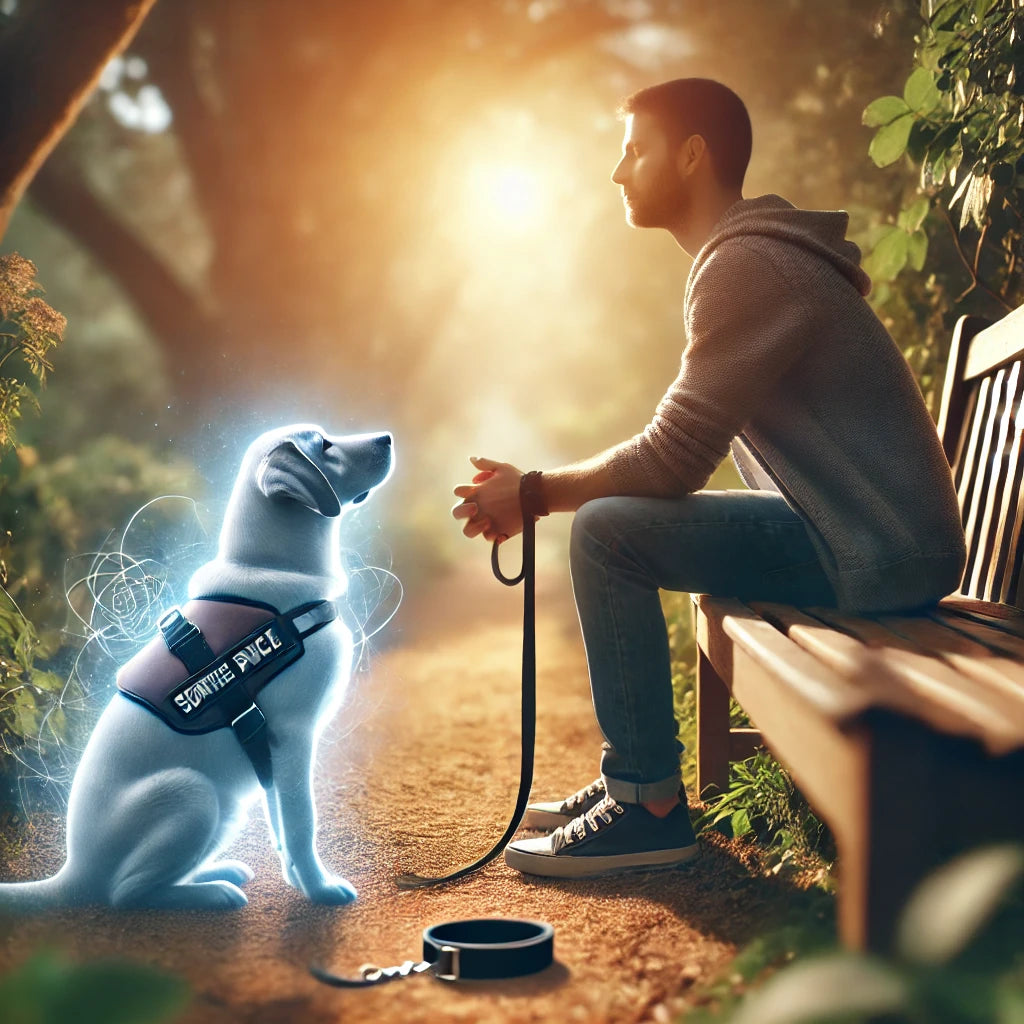The bond between a person and their service animal is one of the most profound and irreplaceable connections in life. Service animals are not just pets; they are companions, caretakers, and an essential part of daily living. When such a significant relationship ends due to the loss of a service animal, it can feel like losing a part of yourself. Navigating the grief of losing a service animal is a deeply personal journey, one that requires compassion, self-care, and support.
Understanding Your Grief
Grief after losing a service animal can be overwhelming, and it is important to acknowledge the depth of this loss. A service animal is more than a helper; they become integrated into the fabric of your routine, your emotions, and your sense of safety. You may experience waves of emotions—sadness, anger, confusion, and even guilt. These feelings are normal and valid.
- Give yourself permission to grieve: Society often minimizes the grief of losing an animal, but your loss is significant. Allow yourself the space and time to mourn without judgment.
- Recognize the unique nature of the loss: Unlike a family pet, a service animal fulfills specific roles that directly support your health and independence. Losing that lifeline can evoke feelings of vulnerability.
Practical Steps to Adjust to Daily Life
The absence of a service animal may disrupt your daily life, as they performed essential tasks that helped you navigate the world. Transitioning to life without them can be challenging, but it is possible to rebuild routines and find alternative sources of support.
- Reassess your daily needs: Without your service animal, consider what tasks or areas of life will require extra assistance. Are there tools or technologies that could temporarily fill the gap? For example, adaptive devices, mobility aids, or home care services might help ease the transition.
- Take time before considering a new service animal: It’s natural to feel a desire to immediately replace your service animal, but it’s important to give yourself time to grieve the specific bond you had. While a new animal may eventually bring comfort, rushing into that decision could overlook the unique process of healing.
Emotional Reflection and Healing
Grief is a process that unfolds over time, and part of healing is reflecting on the memories and meaning your service animal brought to your life.
- Honor their memory: Find ways to memorialize your service animal. Whether through a photo album, a written reflection, or a small ceremony, these acts can help you cherish the time you shared and offer a space to process your emotions.
- Share your feelings: It can be helpful to talk about your grief with trusted friends, family, or others who have also relied on service animals. Online communities or local support groups may offer a compassionate space where others understand the unique challenges of losing a service animal.
- Journaling your emotions: Writing about your grief can be a therapeutic outlet. Journaling allows you to express feelings that may be hard to communicate to others, offering a safe space for self-reflection and emotional processing.
Spiritual or Religious Support
For many, faith or spiritual practices can provide immense comfort during periods of grief. If you have spiritual beliefs, this can be a time to lean on them for solace and strength.
- Seek spiritual guidance: Whether through prayer, meditation, or attending services, connecting with your spiritual community can help you find peace in your sorrow. Many spiritual traditions offer frameworks for understanding loss and suffering, reminding us that we are never truly alone in our grief.
- Rituals of closure: Religious or spiritual rituals, such as lighting a candle, offering a prayer, or creating a sacred space for reflection, can help provide closure. These practices allow for an intentional moment to honor the life of your service animal and express gratitude for their service.
- Consult with a spiritual leader: If you’re struggling with feelings of guilt, anger, or questions of “why,” reaching out to a spiritual leader or counselor can offer compassionate guidance. Sometimes, grief can challenge our beliefs, and having a trusted figure to talk to can bring reassurance during difficult times.
Moving Forward: Finding New Ways to Thrive
While it’s important to grieve the loss of your service animal, it’s also important to look forward. You will find new ways to cope and thrive. This process might take time, and there is no set timeline for when or how you should “move on.”
- Consider therapy or counseling: Grief counseling can be an invaluable resource as you navigate this loss. Speaking with a therapist who understands the depth of your bond with your service animal can help you process your grief in a healthy and supportive environment.
- Rebuild routines gradually: Take small steps toward creating new routines. Whether it’s slowly re-engaging with activities you enjoyed with your service animal or exploring new hobbies, rebuilding your life in a way that honors your past relationship while opening up new possibilities can be healing.
- Cultivate other forms of support: While a service animal plays an irreplaceable role, there are other ways to build a support network. Lean on friends, family, caregivers, and community resources to help with tasks, companionship, or emotional support.
Final Thoughts
Losing a service animal can feel like losing a piece of your heart, but remember that your grief is a reflection of the deep love and trust you shared. Healing doesn’t mean forgetting; it means finding a way to carry their memory with you while continuing to live a full and meaningful life. Be kind to yourself during this time, and know that it’s okay to seek help—whether practical, emotional, or spiritual. You are not alone in this journey, and with time, you will find new ways to thrive, honoring both the past and the future.




